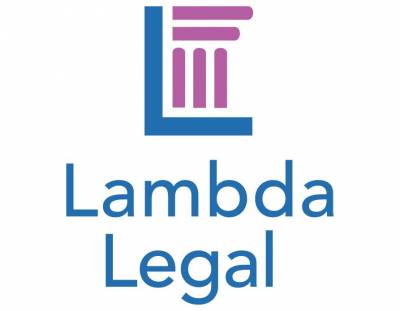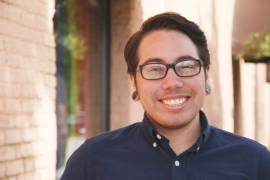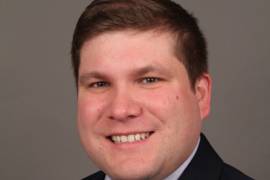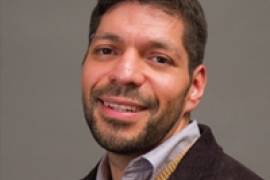
The Untold History of LGBT Latino Activism
Blog Search
Guest blogger Luis Román is a Uniting America Fellow at Lambda Legal's Chicago office.
Growing up in a working-class community around East L.A. after arriving from Mexico, I was always surrounded by Latinas and Latinos. Yet I always felt a little different. I wasn’t sure what caused that difference—perhaps it was my lisp or the fact that I would rather be reading than playing flag football. It wasn’t until I began to explore my sexuality that I realized that these feelings of difference stemmed from my queerness.
As an undergraduate at UCLA, I focused my energies on discovering myself—a queer Chicano immigrant. And although I later began to meet more Latinas and Latinos like myself, I always felt that there was an absence of LGBT Latino leadership.
This deficit thinking, however, began to vanish as I started unpacking the missing history of LGBT Latino activism. I soon realized that it wasn’t so much a lack of leadership, but rather that the narrative of LGBT activism was constructed in a way that purposely ignored people who looked like me.
For instance, the first openly gay candidate for public office was not Harvey Milk, but Jose Sarria. It was transwomen of color like Sylvia Rivera who were at the forefront of the Stonewall Riots. Yet this history remains mostly untold, and the current gay rights movement continues to be dominated by people who don’t look like me.
This is precisely why I felt it was important to help organize and attend Unión=Fuerza, the first all-day Latino convening at Creating Change, the National Gay and Lesbian Task Force’s annual LGBT conference. My goal at Lambda Legal is to help build bridges between immigrant and LGBT communities. Those of us who belong to multiple marginalized communities play a critical role. As Latinos, we need to help the LGBT community realize the importance of the Latino community, and we need to showcase to the Latino community the significance of its LGBT members.
Unión=Fuerza brought together an array of community leaders of all ages, genders and ethnic backgrounds, to collectively learn and strategize. What I valued the most, and what I felt to be most powerful, was being able to listen to the stories of the older activists. They shrank the aforementioned historical gap and added another element of the history of LGBT Latino activism in the U.S. and Latin America. They recalled large gatherings years before Unión=Fuerza, and shared intimate moments such as losing loved ones to AIDS. A common denominator was the theme of survival. It was important for these LGBT Latino activists to maintain close ties to their Latino heritage, as well as march proudly in Gay Pride parades. For them, survival was a game of balancing and negotiating identities.
My generation has the powerful opportunity to take that survival one step further—into transformation. Because of the sacrifices LGBT Latino activists made in the past, I am now able to boldly claim my queer Chicano immigrant identity. I no longer have to fear rejection, but rather focus on how I can transcend that acceptance into action. The task is a daunting one, but I am ready for the challenge.
Unión=Fuerza also gave me the confidence to stand up, not only for myself, but also on behalf of all of my communities. I now understand that I have an extended family of LGBT Latinas and Latinos, stretching from coast to coast, who believe in my potential as a leader.
Unión=Fuerza demonstrated passion, love and hope. I want to replicate that hope everyday during my fellowship with Lambda Legal. Organizing a historic one-day event made me realize the importance of my role in this organization. I am building the bridges we need to cross if one day we want to live in a just and fair world.
Previously: Unity equals power for LGBT Latinos




